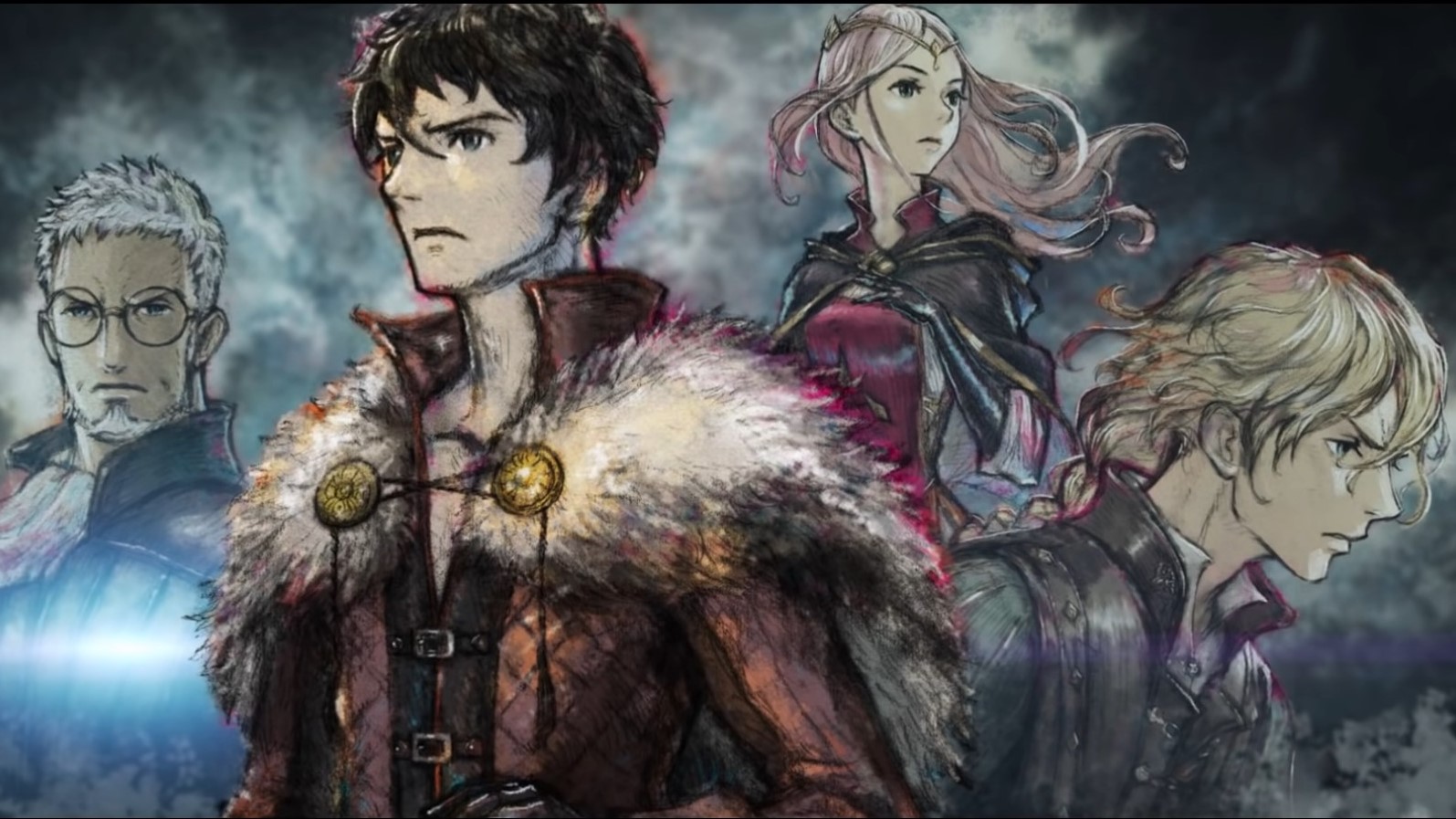Those who watched the most recent Nintendo Direct know that Square Enix’s new RPG, Project Triangle Strategy, received an announcement trailer during the presentation, alongside a surprise demo drop. Don’t be fooled by the terrible placeholder title, though. Project Triangle Strategy‘s somewhat-lengthy demo provides a solid preview of what players can expect to find in the full game when it launches in 2022.
Using the same awesome visuals as 2018’s Octopath Traveler, Project Triangle Strategy manages to implement new, strategy-driven gameplay systems that set it apart.
History of War
After giving you a short backstory on the land of Norzelia — the continent in which this story of war and conflict takes place — the demo drops you right in the middle of things as Serenoa Wolffort just as a short-lived era of peace is about to come to an end.
Norzelia is home to three great nations that don’t exactly play nice. The Kingdom of Glenbrook is a land of flourishing trade, the Grand Duchy of Aesfrost contains rich veins of iron, and the Holy State of Hyzante is where life-giving salt can be found. Their previous conflicts eventually grew into what became known as the Saltiron War (not the most creative name, but it gets the point across), so it’s not entirely surprising they’re fighting once again.
With such a large amount of lore and history, there’s sure to be some confusion here and there, but the demo does a decent job guiding you through the most vital information. For example, you’re able to instantly pull up a character profile whenever a character speaks during dialogue sections, which helps things tremendously. This is especially true when you’re trying to remember the various houses, allegiances, and family ties that play central roles in the plot.
Friends in High Places
Project Triangle Strategy may look like Octopath, but it certainly doesn’t play like it. It’s not another static turn-based RPG. It’s much more dynamic, as it contains familiar bits and pieces of other strategy RPGs that came before it. Think Final Fantasy Tactics and, maybe, the more recent Fire Emblem: Three Houses.
Each party member (or unit) is a different class with unique abilities and playstyles. Serenoa, for instance, is a Soldier. He’s most effective with up close and personal attacks, but his vertical movement is a bit lacking. He won’t be jumping up on a roof to get a vantage point.
Hughette, on the other hand, is a Scout who inexplicably rides into battle on a giant bird. Naturally, she can change elevation with ease, giving her the ability to rain down fire from above with her bow.
In all, you can control up to nine party members in battle. Couple that with the need to understand verticality, positioning, and terrain, and there’s a lot to keep track of during combat. Attacks from greater elevations do more damage, for example, and attacks from behind are automatic critical hits. This is true for both friends and foes.
Enemies that are close enough to attack you will have red lines connecting them to your units, much like Three Houses. Additionally, purple spaces indicate areas where foes can reach you with their attacks.
Most enemies in the demo can move and attack from a good distance, and the damage they deal adds up fast. For this reason, you won’t want to venture too close to a group of foes without having some sort of plan in mind. Even so, one or two wrong moves can put your units in dire situations depending on their position.
The key to winning battles efficiently, then, is knowing how to properly use each of your units in terms of positioning, movement, attack, and support.
Talk It Out
One of the most interesting parts of Project Triangle Strategy has nothing to do with its combat.
Exploration phases occur between battles and story scenes, and it’s during these phases where you shape Serenoa’s mindset as a leader through dialogue choices.
The “Scales of Conviction” system is an invisible parameter that changes as you make dialogue choices between utility, morality, and liberty-related decisions. Depending on your choices, new party members may join your cause.
Even beyond the Scales of Conviction feature, there’s also a voting system for major plot-altering decisions. During the voting phases, each member of your party, including you, votes on which path you take in the story. The majority will win, no matter what you choose to vote for.
However, if you gather enough information on the topic being voted on through exploration and conversation, you can attempt to persuade party members to vote how you want them to. In the end, you won’t know exactly how they’re going to vote until it actually happens.
It’s an engaging bit of unpredictable gameplay that breaks up the action-oriented segments perfectly.
Project Triangle Strategy is definitely a turn-based RPG that you should keep an eye out for leading up to its full release in 2022. This is doubly true for those who can’t get enough SRPGs, specifically.
The demo manages to give a solid look at the story, world, combat, dialogue, and even the main characters to some extent. It shows off a lot more than you might expect, but like any good demo, it’ll leave you wanting much, much more.







Published: Feb 21, 2021 10:42 pm